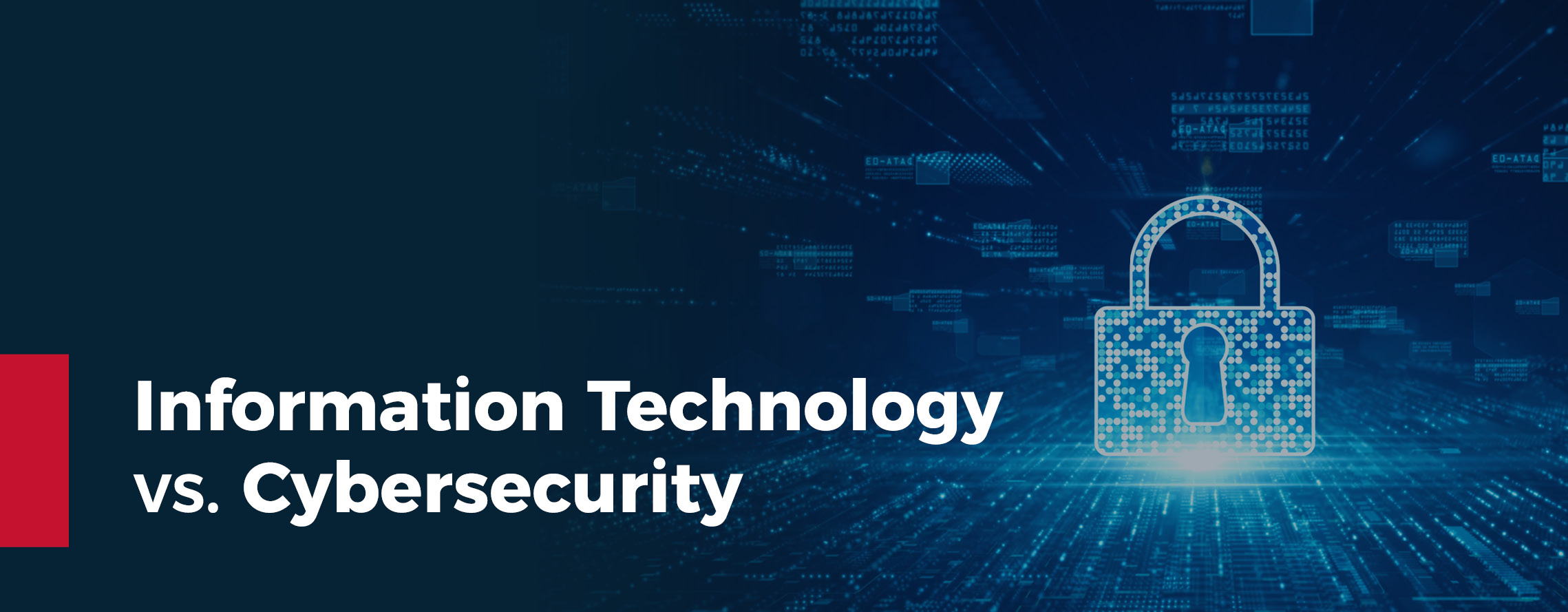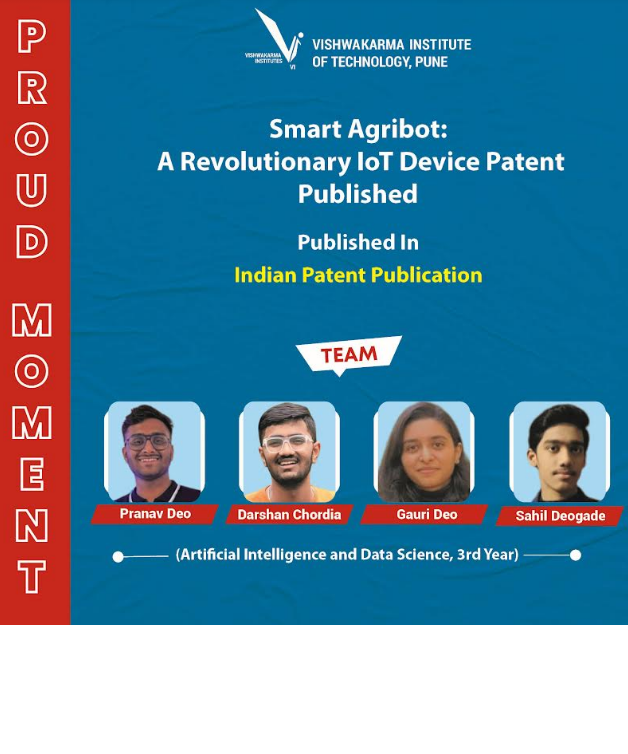
As technology continues to evolve at an exceptional pace, the fields of Information Technology (IT) and Cybersecurity have emerged as critical components of modern business operations and personal computing. Both fields offer rewarding careers, but they cater to different interests and skill sets. Choosing between Information Technology and Cybersecurity can be challenging, especially for students at the Vishwakarma Institute of Technology, Pune. This blog aims to provide a comprehensive comparison of these fields, helping students make an informed decision about their career paths.
Understanding The Information Technology
Information Technology, commonly referred to as IT, is a broad field that involves the use of computers, networks, and systems to manage and process information. IT professionals are responsible for a wide range of tasks, including:
- System Administration: IT admins are the IT department's problem solvers, addressing various technical issues and ensuring smooth operation. They maintain the health of computer systems and networks, ensuring users have access to the resources they need and that everything runs efficiently.
- Database Management: Database managers are the information architects. They design and manage databases, which store and organize vast amounts of data. They ensure data is accurate, secure, and accessible for users who need it.
- Software Development: Software developers are the creators behind the applications we use every day. They design, code, test, and maintain software programs, ensuring they function properly and meet user needs.
- Technical Support: Tech support specialists are the IT department's front line. They assist users with troubleshooting hardware and software problems, helping them get back on track quickly.
- Network Management: Network managers oversee the communication channels. They set up, configure, and maintain computer networks, ensuring devices can connect and share resources securely.
Understanding The Cybersecurity
- Threat Analysis: Cybersecurity professionals regularly conduct threat analysis to pinpoint weaknesses in systems. They assess potential threats, such as malware or phishing attacks, to prevent future breaches.
- Incident Response: When a security breach occurs, incident response teams act swiftly to decrease damage. They analyze the breach, contain it, and work to restore systems to normal operation.
- Security Protocols: Developing powerful security protocols is crucial in cybersecurity. Professionals create and enforce policies to ensure that sensitive information remains protected from unauthorized access.
- Encryption: Encryption turns data into a coded format to prevent unauthorized access. Cybersecurity experts use encryption to protect data while it's being transferred and when it's stored.
- Ethical Hacking: Ethical hackers simulate cyberattacks on systems to uncover vulnerabilities. By identifying and addressing these weaknesses, they help strengthen the overall security posture of an organization.
Essential Coursework for a Career in Information Technology
To pursue a career in Information Technology, students typically need a bachelor's degree in IT, Computer Science, or a related field. Coursework often includes:
- Programming Languages (Java, Python, C++)
- Database Management Systems
- Networking Fundamentals
- Operating Systems
- Software Engineering
- Web Development
Essential Coursework for a Cybersecurity
For a career in Cybersecurity, a degree in Cybersecurity, Information Security, or a related field is usually required. Key areas of study include:
- Network Security
- Cryptography
- Ethical Hacking and Penetration Testing
- Security Policies and Procedures
- Incident Response
- Cyber Forensics
Career Opportunities in Information Technology
IT professionals can find employment in virtually every industry, as all modern organizations rely on IT infrastructure. Common job roles include:
- System Administrator: The system administrators are responsible for the maintenance and troubleshooting or upgrading of the organization’s computer systems and networks to ensure smooth operations. These people play a very crucial role in keeping up with its security and ability to function.
- Database Administrator: The database administrators organize and manage data using specific database management software, ensuring the availability, integrity and performance of data. They also deal with backup databases as well as securing them.
- Software Developer: Software developers are involved in developing software applications that meet user requirements. This encompasses coding, testing, and debugging. They work on different platforms like the internet, mobile among other desktop environments.
- IT Support Specialist: IT support specialists provide technical help to users by resolving hardware and software issues and offering directions on technology use. Their assistance is necessary to keep productivity levels high while minimizing downtime.
- Network Engineer: Network engineers plan, implement, and control an organization's network infrastructure in order to have secure connectivity for the enterprise. They have such duties as configuring firewalls, routers as well as switches among others.
Career Opportunities after Cybersecurity
With the increasing prevalence of cyber threats, the demand for cybersecurity professionals is on the rise. Career options include:
Cybersecurity, a specialized branch of IT, focuses on protecting computer systems, networks, and data from cyber threats. Cybersecurity professionals are tasked with safeguarding digital assets against hacking, data breaches, and other forms of cybercrime. Key responsibilities in this field include:
- Security Analyst: Security analysts constantly monitor systems for security breaches, probe into incidents and come up with preventive measures. They are essential in safeguarding against cyber threats and ensuring data privacy.
- Penetration Tester (Ethical Hacker): Penetration testers simulate cyber attacks to identify vulnerabilities in systems and networks. With the information they gather, organizations can impede actual invasions.
- Security Consultant: Security consultants offer counsel on how companies should secure their systems, conduct risk assessments and formulate security policies. Their proficiency enables entities to be a step ahead of potential hazards.
- Incident Responder: Incident responders work towards minimizing security incidents’ impact as well as restoring normal operations. By analyzing the breach, they can prevent future ones as well as improve conditions of security.
- Cryptographer: Cryptographers design algorithms and encryption techniques that protect data and communication channels. This is crucial in safeguarding sensitive information from unauthorized users or any form of cyber-attack.
Skills Required for Successful IT Professionals
Successful IT professionals typically possess the following skills:
- Technical Proficiency: Strong understanding of computer systems, networks, and software.
- Problem-Solving: Ability to troubleshoot and resolve technical issues.
- Communication: Effective communication with team members and users.
- Adaptability: Staying updated with the latest technology trends and developments.
- Project Management: Managing IT projects from inception to completion.
Skills Required for Successful Cybersecurity Professional
Cybersecurity professionals need a specific set of skills, including:
- Attention to Detail: Identifying and addressing security vulnerabilities requires meticulous attention to detail.
- Analytical Thinking: Ability to analyze threats and develop effective countermeasures.
- Technical Knowledge: Deep understanding of security protocols, encryption, and network architecture.
- Ethical Judgment: Strong ethical principles to ensure responsible handling of sensitive information.
- Continual Learning: Staying ahead of emerging threats and evolving security technologies.
Emerging Trends in the IT Industry
The IT industry is continually evolving, with several trends shaping its future:
- Cloud Computing: The rise of cloud services has led to scalable and flexible IT for companies. In order to maximize efficiency, organizations are embracing the use of the cloud through which they can cut costs and better orientate collaboration.
- Artificial Intelligence (AI): IT is becoming smarter as AI and machine learning are incorporated into it. Through this concept, industries have changed their way of doing things making them efficient by automating processes and creating better customer experiences.
- Internet of Things (IoT): As such, there is more need for managing connected devices in IoT environments as they expand. Security and management are critical factors that businesses are focusing on considering so many devices coupled together to open new possibilities.
- Big Data Analytics: To make business decisions or strategies; you must be able to analyze large data sets effectively. Consequently, firms have invested heavily in big data technologies with a view of gaining insights into future trends thus enabling them to make informed decisions.
- 5G Technology: Fast and reliable network connectivity due to 5G technology adoption.This technological revolution will give birth to real-time transmission of data; improved mobile experiences will be achieved; self-driving cars will be running among other advanced applications across various sectors
Emerging Trends in the Cybersecurity
Cybersecurity is also experiencing significant trends, driven by the need to counter sophisticated threats:
- Zero Trust Security: Zero trust is a position that gives significance to rigid control over access and consistent confirmation so that no entity can be trusted by default. This strategy ensures the safety of confidential information and systems from possible internal or external threats to an organization.
- Automation and AI: Cybersecurity increasingly uses AI and automation to increase efficiency in threat detection and response. These processes help quickly identify threats, reduce human errors, and strengthen overall security postures.
- Cybersecurity Mesh: Cybersecurity mesh creates a flexible scalable security architecture that adjusts itself in response to changing IT environments. As it provides a holistic view of security controls as well as policies on all network segments, this enhances threat detection as well as response times.
- Ransomware Defense: Developing measures against ransomware attacks is top priority for organizations which include robust backup systems, staff training, advanced threat detection techniques designed to minimize the impact of such attacks.
- Regulatory Compliance: Data protection regulations and standards are essential for maintaining trust and avoiding legal consequences. GDPR, CCPA, and other industry specific regulations are being implemented to protect personal and sensitive information.
Conclusion
Choosing between Information Technology and Cybersecurity depends on your interests, skills, and career goals. If you enjoy working with a broad range of technologies and solving diverse technical problems, a career in IT might be the right fit. On the other hand, if you have a passion for protecting digital assets and staying ahead of cyber threats, Cybersecurity could be your ideal path.
Both fields offer exciting opportunities and the chance to make a significant impact in the digital world. At Vishwakarma Institute of Technology, Pune, students have access to excellent education and resources to pursue their chosen career paths. Whichever path you choose, you will be entering a journey in a dynamic and ever-evolving industry.

